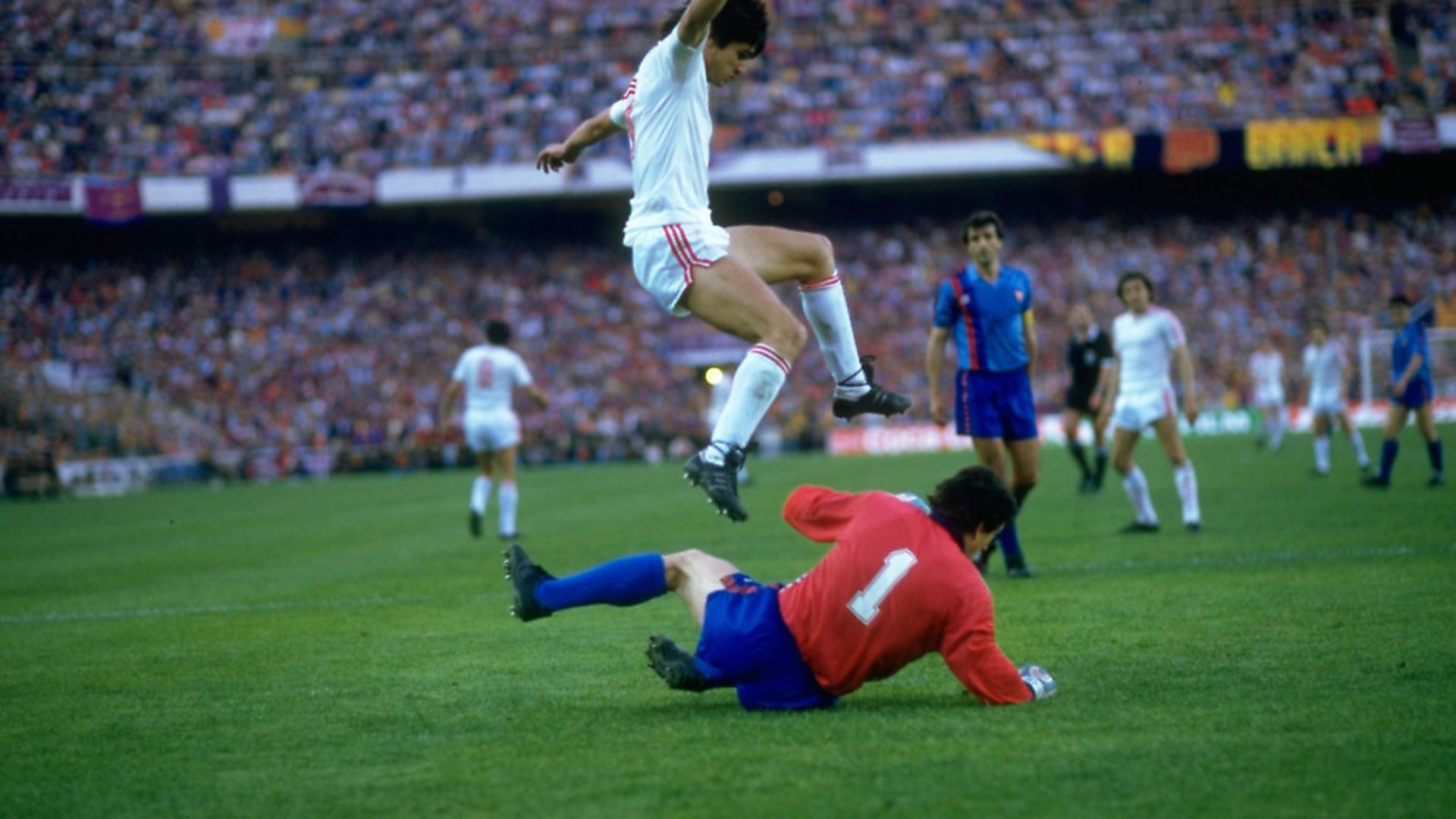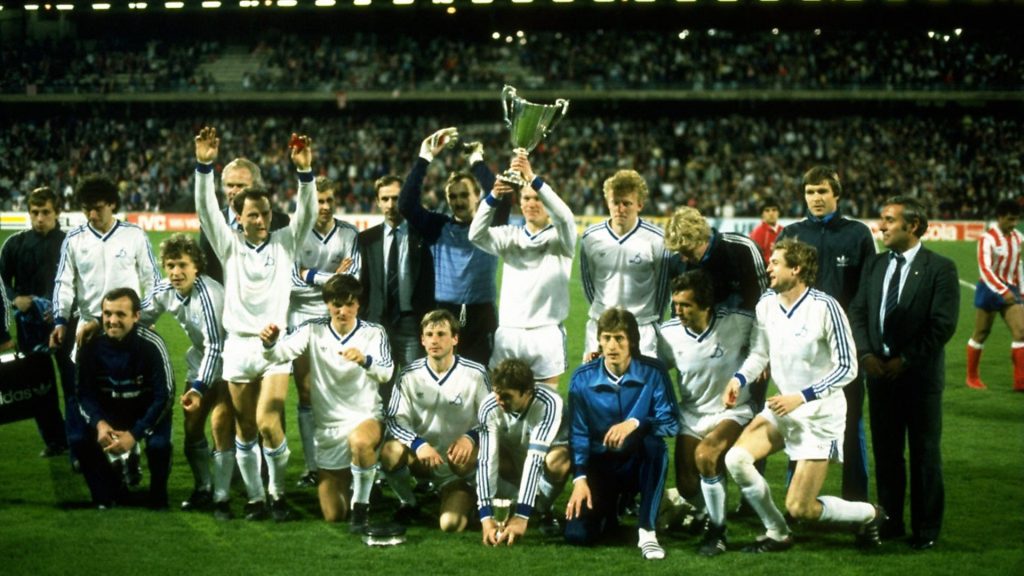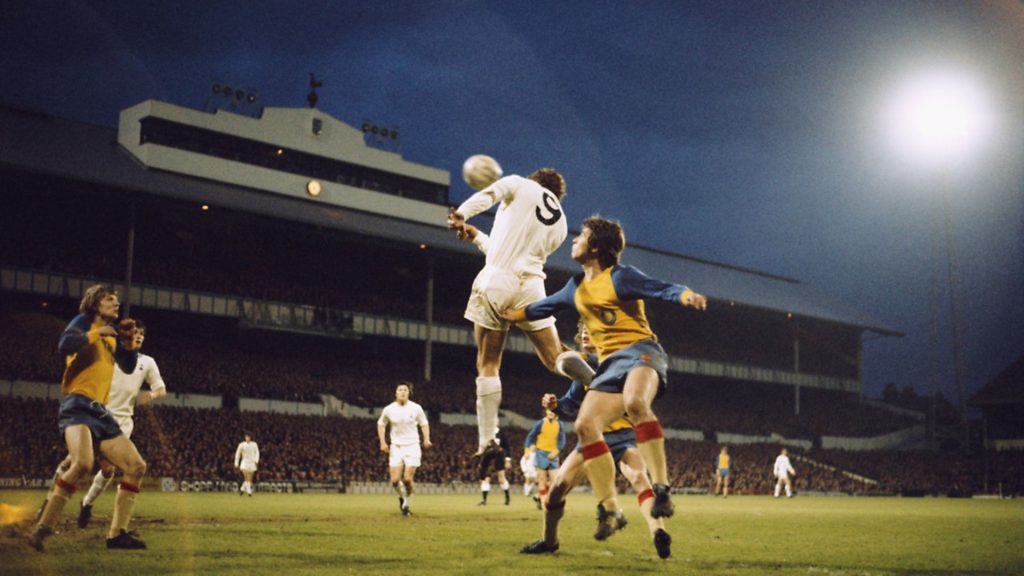
It was nothing more than a footnote, buried in the results of the Uefa Europa League second qualifying round, second leg, but it leaped out for those who remembered the days of glory: Progrès Niederkorn 2, Budapest Honved 0 (Niederkorn win 2-1 on aggregate).

Honved once had the best football team in Europe. Aided by the conscriptive powers of the Hungarian Army, who the club represented, Honved possessed the core of the Mighty Magyars who humiliated England 6-3 at Wembley in 1953, and 7-1 in Budapest the following year. The brightest of their stars was the ‘Galloping Major’, Ferenc Puskás, Europe’s first great post-war footballer.
Honved are one reason the Champions League, the most glamourous and wealthy club football competition in the world, exists. It was their 3-2 defeat to then English champions Wolverhampton Wanderers, on a boggy Molineux surface in 1954, that led to the creation of the Champions League’s precursor, the European Cup.
In the aftermath, Wolves manager Stan Cullis declared his team to be the best in the world. Others, noting he ordered to pitch to be soaked at half-time to stymie the passing football which had earned the Hungarians a 2-0 lead, were not convinced.
Gabriel Hanot, editor of French sports paper L’Equipe, suggested a Continental-wide competition. The European governing body, Uefa, agreed and it launched the following year.

Wolves reached the quarter-finals in 1960 but have not qualified since. Honved have fared even worse. When Russian tanks arrived on the streets of Budapest in October 1956 to quell the Hungarian uprising they were in Spain, playing Athletic Bilbao in the competition. Many players, including Puskas, decided to go into exile and the great team broke up.
While neither Hungarian football nor Honved have really recovered it is still humbling to be despatched in a qualifying round from a competition that is very much the Champions League’s poor relation. Most humiliating of all is they lost to a club from Luxembourg, a nation with next to no footballing heritage.
The result sums up one of the unforeseen consequences of glasnost, perestroika and the fall of the Berlin Wall.
Once the big football teams of the West feared a trip behind the Iron Curtain, and not just because of the food, cheap hotels and bugged rooms. In the 1960s, 70s and 80s English teams were regularly knocked out by clubs from the old Soviet satellite states, including moderate ones such as Velez Mostar (Yugoslavia), Dukla Prague, Lokomotiv Leipzig and Universitatea Craiova (Romania).
Even Liverpool, who dominated the European Cup between 1977 and 1984, winning four times, had reason to fret. In that eight-year period they lost only four times – to Nottingham Forest, Dinamo Tblisi, CSKA Red Flag of Sofia, and Poland’s Widzew Lodz. The latter also saw off both Manchester clubs in that time.
More than a dozen clubs from Eastern Europe went on to reach the semi-finals and some had the quality to go all the way. Steaua Bucharest won the European Cup in 1986, defeating Terry Venables’ Barcelona in the final. Five years later Red Star Belgrade beat a Marseilles team featuring Chris Waddle. Partizan Belgrade lost to Real Madrid in the 1966 final.
The other European competitions were won by clubs from Hungary, Yugoslavia, Czechoslovakia, East Germany and the Soviet Union. Poland produced a finalist, Bulgaria a European Cup semi-finalist. Only Albania, of the Iron Curtain countries, had no impact.
Now some of these teams, like the nations they represented, have been consigned to history. The old East German teams like Carl Zeiss Jena and Lokomotiv Leipzig toil in the amateur regional leagues of unified Germany.
Dukla Prague, best known for featuring in a song by indie band Half Man Half Biscuit, folded before re-forming. In the tortured world of Romanian football both Universitatea Craiova and Steaua Bucharest have been the subject of legal disputes as to who actually owns the clubs’ names.
Some clubs still prosper within their own countries, even winning titles, but are rarely qualify for the lucrative Champions League group stages, even with the system now rigged in their favour. If they do gain the golden ticket and secure one of the places reserved for the champions of smaller nations, they are usually just cannon fodder for the rich teams of the West.
This season there were just two teams from the old Soviet satellites in the 32-club group stage, Red Star (Serbia) and Vitoria Plzen (Czech), a couple from Moscow (Lokomotiv and CSKA) and Shaktar Donetsk of Ukraine.
No team from the old Soviet satellite states has reached the semi-finals since the competition was rebranded as the Champions League in 1992-93 and the last quarter-finalists were Legia Warsaw in 1996. Ukraine has provided a semi-finalist (Dinamo Kyiv in 1999) and a quarter-finalist as recently as 2013 (Shakhtar), but now has other problems, while Russian clubs only occasionally make the last 16 (most recently Zenit St Petersburg in 2014).
What happened. Why the decline? Under communism sport was treated the same as any other aspect of society with the state taking control. Clubs were absorbed into government ministries often with their names changed to reflect the new ownership. Honved means ‘home defence’. The club was known as Kispest, a district of Pest, but renamed in 1949 when the army took over. Rivals MTK became the team of the secret police and the two clubs dominated.
This pattern was repeated all over the Soviet Bloc. Dukla Prague, Steaua Bucharest, CSKA Sofia and East German club Vörwarts were army teams, Dynamo Berlin and Dinamo Bucharest represented the secret police. Rapid Bucharest, Lokomotiv Leipzig, Lokomotiv Moscow were run by transport ministries. Depending on the level of patronage (Steaua had Valentin Ceausescu, son of Romanian dictator Nicolae, as general manager) these clubs were given considerable resources. Players could be conscripted into army teams, or coerced into those backed by the secret police.
Referees were also vulnerable to the latter. Dynamo Berlin were the Stasi’s team. Erich Mielke, the head of the secret police, was a football fan and the team tended to benefit from favourable decisions as well as the pick of players and facilities. The club won ten successive East German championships from 1979 to 1988, though with the state preferring to push talented sportsmen and resources towards Olympic sports Dynamo made little impact in Europe.
The fall of the Wall brought an end to Dynamo’s domestic dominance. Loathed by much of the population they swiftly declined and now play in the amateur regional league.
Not every club fell away so sharply, but the end of the command economy in Eastern Europe meant institutions such as the railways and security services neither could, nor would, continue to subsidise teams, or force players to join them. Instead freedom of movement allowed players to leave for the West.
In the past some older players, such as the Polish midfielder Kazimierz Deyna, the Yugoslavian international Dragan Džajic, and Anton Ondrus, captain of Czechoslovakia’s 1976 European champions, were allowed to leave as they entered their thirties, in return for much sought-after western currency, with most of their new wage being taken by the state. As Soviet control faded players became freer and once the Iron Curtain opened the trickle became a flood.
The nations of the former Yugoslavia became an exporter of footballers on a par with Brazil. Ten of the Croatian team in this summer’s World Cup final played in the West and one in Turkey. Of the 23-man squad only the third-choice goalkeeper and reserve midfielder Filip Bradaric played in Croatia, and he subsequently moved to Italy.
With their players leaving as soon as they are able, the Eastern European clubs have fallen way behind the West. The only exceptions are those funded by oligarchs (Shakhtar Donetsk, owned by billionaire Rinat Akhmetov) or huge companies (Zenit St Petersburg, owned by Russian oil giant Gazprom). Even these teams struggle to make the business end of the Champions League.
It is not just the players who have gone. The spectres of hooliganism and match-fixing bedevil some eastern European leagues and spectator facilities at most clubs are basic by modern, western standards. Meanwhile television money pours into the Champions League, the Premier League, La Liga, the Bundesliga, Serie A and Ligue 1 exacerbating the gulf between east and west. The revenue of the 20 English Premier League clubs, at 4.9bn euros, is ten times the total generated by all the top-flight clubs of the 12 nations that emerged from the former Soviet satellite states, nearly 200 clubs.
The east still produces great players such as Croatian Luka Modric of Real Madrid, Pole Robert Lewandowski of Bayern Munich, and Slovakian Marek Hamšík of Napoli, but with players like these now performing in the West it no longer produces great teams.









